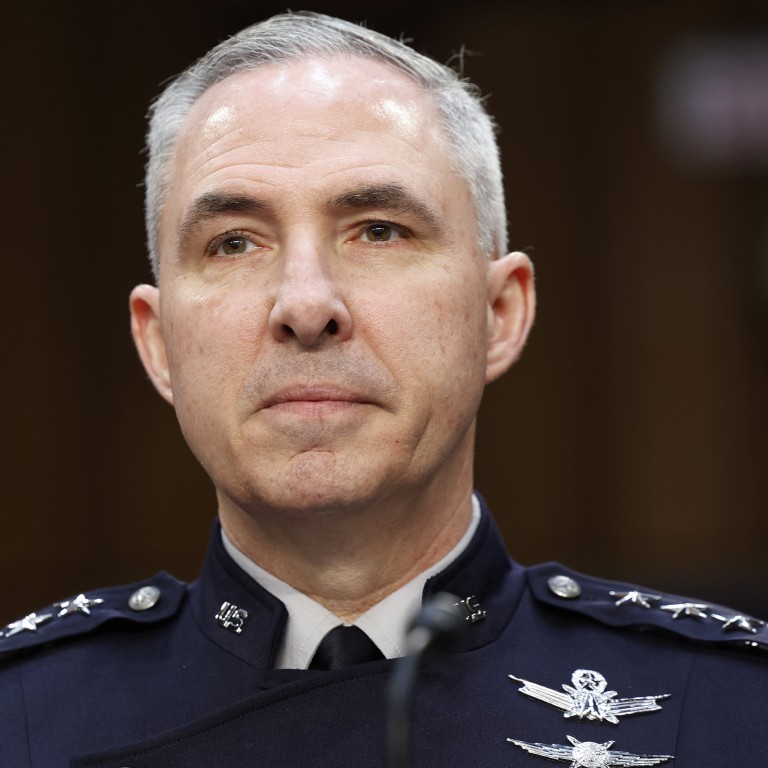
US general confirms China has reached out to discuss space safety as military ties show signs of thawing
- US Space Command chief Stephen Whiting says Beijing has contacted US about two space-related matters in past six months, according to news site
- ‘We think that is very positive and we would like to continue to build on that,’ Whiting says as the rivals restore defence talks
“We think that is very positive and we would like to continue to build on that,” he said on the sidelines of a space symposium earlier this week.
US general raises alarm over ‘breathtaking’ growth in China’s space tech
According to the report, the four-star general said the US routinely shared data on potential orbit collisions with countries including China, but Beijing did not always respond to its engagement.
It was unclear from the report how many times China reached out to the US. The report also did not elaborate on the two issues or when exactly the interactions took place.
Whiting also told reporters that the US had long underscored that close international collaboration on orbital data was crucial to prevent collisions and that Washington “would love to have a regular path to share safety data” with Beijing.
The American space commander’s comments came as frosty relations between the two major powers thawed on the back of high-level engagements in recent months.
China revives military safety talks with US, warns against sovereignty threats
In particular, military-to-military communications were restored following the meeting between Presidents Joe Biden and Xi Jinping in San Francisco last November.
In December, senior officials from both sides held a videoconference to discuss the importance of working together to “avoid miscalculations and maintain open and direct lines of communication”, in the first senior military communication since engagements were halted in 2022.
For space issues, US and Chinese officials met in October to discuss space situational awareness data – a meeting that was reportedly the result of US Commerce Secretary Gina Raimondo’s visit to China in September.
Raimondo had discussed space commerce, among other economic issues, with Chinese Vice-Premier He Lifeng during her trip.
China has rapidly ramped up its activities in outer space in recent decades. Whiting earlier said that Beijing’s military space abilities were growing at a “breathtaking pace”.
Turkey applies for China-Russia space programme to build base on the moon
China’s outreach to the US on space safety meant that space could emerge as one of a few areas of cooperation between the two global powers, joining issues such as climate change and artificial intelligence.
In another example of potential cooperation in space research between the US and China, Nasa in December gave the go-ahead for its researchers to study China’s moon samples, marking a notable exception as US law has kept the American space agency and its Chinese counterpart at arm’s length.
But that development also came with some controversy. Nicholas Burns, US ambassador to China, said at a forum that same month that he did not believe “the Chinese have shown much of an interest in working with the United States”, when asked about space engagement.
The China National Space Administration (CNSA) hit back at Burns’ comments, saying that China welcomed scientists from all over the world, including the US, to apply for lunar samples collected by China’s Chang’e 5 mission in 2020.
According to Chinese state media, a spokesman for China’s space agency said China attached great importance to international space cooperation and was “always open to space exchanges” with the US.
“I don’t understand whether the United States is playing with words or passing the buck,” Xu Hongliang of the CNSA said.

